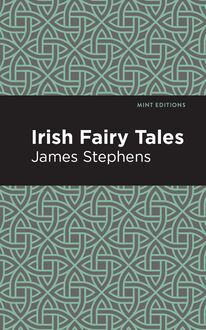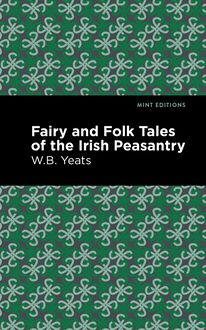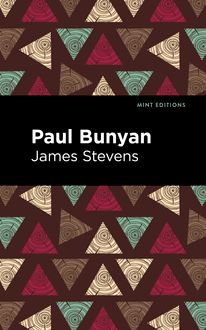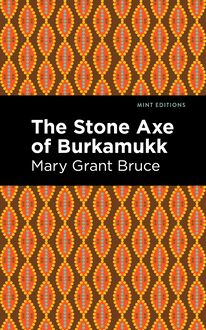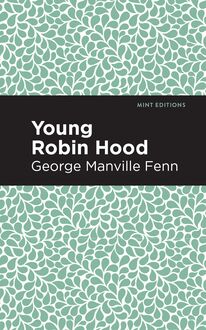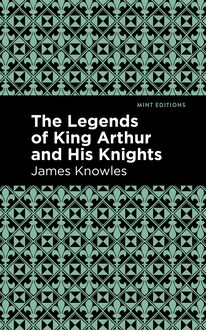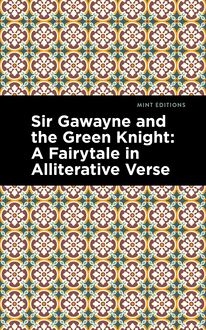-
 Univers
Univers
-
 Ebooks
Ebooks
-
 Livres audio
Livres audio
-
 Presse
Presse
-
 Podcasts
Podcasts
-
 BD
BD
-
 Documents
Documents
-
- Cours
- Révisions
- Ressources pédagogiques
- Sciences de l’éducation
- Manuels scolaires
- Langues
- Travaux de classe
- Annales de BEP
- Etudes supérieures
- Maternelle et primaire
- Fiches de lecture
- Orientation scolaire
- Méthodologie
- Corrigés de devoir
- Annales d’examens et concours
- Annales du bac
- Annales du brevet
- Rapports de stage
La lecture à portée de main
Vous pourrez modifier la taille du texte de cet ouvrage
Découvre YouScribe en t'inscrivant gratuitement
Je m'inscrisDécouvre YouScribe en t'inscrivant gratuitement
Je m'inscrisEn savoir plus
Vous pourrez modifier la taille du texte de cet ouvrage
En savoir plus

Description
Sir Gawayne and the Green Knight: A Fairytale in Alliterative Verse is a heroic romance published anonymously in the 14th century by the “Gawayne Poet.” One of the best known Arthurian stories, Sir Gawayne and the Green Knight: A Fairytale in Alliterative Verse has been translated by the likes J.R.R. Tolkien and adapted four times for film. At a New Year’s Eve celebration in King Arthur’s court, a mysterious and looming figure cast entirely in green appears unexpectedly. With no intentions to fight, the stranger presents the following challenge: take his axe and strike him but submit to an equal blow in one year and a day, with the victor being awarded his giant axe as a reward. When it seems that the stranger has no takers, King Arthur steps forth—only to be stopped by his youngest knight and nephew who requests to take on the task himself. Taking the axe in his hand, Sir Gawayne moves to strike and in doing so begins a path of adventure and intrigue leading him to solve the mystery of the Green Knight. With an eye-catching new cover, and professionally typeset manuscript, this edition of Sir Gawayne and the Green Knight: A Fairytale in Alliterative is a classic of Middle English literature reimagined for the modern reader.
Sujets
Informations
| Publié par | Mint Editions |
| Date de parution | 12 octobre 2021 |
| Nombre de lectures | 1 |
| EAN13 | 9781513213729 |
| Langue | English |
| Poids de l'ouvrage | 2 Mo |
Informations légales : prix de location à la page 0,0300€. Cette information est donnée uniquement à titre indicatif conformément à la législation en vigueur.
Extrait
Sir Gawayne and the Green Knight
A Fairytale in Alliterative Verse
Sir Gawayne and the Green Knight: A Fairytale in Alliterative Verse published in 1903.
This edition published by Mint Editions 2021.
ISBN 9781513215723 | E-ISBN 9781513213729
Published by Mint Editions®
minteditionbooks.com
Publishing Director: Jennifer Newens
Design & Production: Rachel Lopez Metzger
Project Manager: Micaela Clark
Translated by: Charlton Miner Lewis
Typesetting: Westchester Publishing Services
C ONTENTS P REFACE C ANTO I . T HE G REEN K NIGHT C ANTO II . E LFINHART C ANTO III . G AWAYNE C ANTO IV . C ONCLUSION
P REFACE
Arms and the man I sing,—not as of old
The Mantuan bard his mighty verse unrolled,
But in such humbler strains as may beseem
Light changes rung on a fantastic theme.
My tale is ancient, but the sense is new,—
Replete with monstrous fictions, yet half true;—
And, if you’ll follow till the story’s done,
I promise much instruction, and some fun.
Canto I
T HE G REEN K NIGHT
King Arthur and his court were blithe and gay
In high-towered Camelot, on Christmas day,
For all the Table Round were back again,
At peace with God and with their fellow-men.
Their shields hung idly on the pictured wall;
Their blood-stained banners decked the festal hall
Light footsteps, rustling on the rush-strewn floors,
And laughter, rippling down long corridors,
Attested minds at ease and hearts at play,—
Rude Mars unharnessed for love’s holiday.
In the great hall the Christmas feast was done.
The level sunbeams from the setting sun
Stretched through the mullioned casements to the wall,
And wove fantastic shadows over all.
The revelry was hushed. In tranquil ease
The warriors grouped themselves by twos and threes
About the dames and damsels of the court,
And chattered careless words of small import;
But in an alcove, unobserved, apart,
Young Gawayne sat with Lady Elfinhart,
In Arthur’s court no goodlier knight than he
Wore shirt of mail, or Cupid’s panoply;
And Elfinhart, to Gawayne’s eager eyes.
Of all heaven’s treasures seemed the goodliest prize.
Now daylight faded, and the twilight gloom
Deepened the stillness in the vaulted room,
Save where upon the hearth a fitful glow
Blushed from the embers as the fire burned low.
There is a certain subtle twilight mood,
When two hearts meet in a dim solitude,
That thrills the soul e’en to the finger-tips,
And brings the heart’s dear secrets to the lips.
In Gawayne’s corner, as the shades grew thicker,
Four eyes waxed brighter, and two pulses quicker;
Ten minutes more of quiet talk unbroken,
And heaven alone can tell what might be spoken!
But it was not to be, for fates unequal
Compelled—but this anticipates the sequel.
Just in the nick of time, King Arthur rose
From his sedate post-prandial repose,
And called for lights. Along the shadowy aisles
His pages’ footsteps pattered o’er the tiles,
Speeding to do his errand, and at once
Four tapers flickered from each silver sconce.
The scene was changed, the dreamer’s dream dispelled,
And what might else have been his fate withheld
From Gawayne’s grasp. So may one touch of chance
Shatter the fragile fabric of romance,
And all the heart’s desire,—the joy, the trouble,—
Flash to oblivion with the bursting bubble!
But Arthur, on his kingly dais-seat,
Felt nothing of the passion and the heat
That fire young blood. He raised his warlike head
And glancing moodily around him, said:
“So have ye feasted well, my knights, this day,
And filled your hearts with revel and with play.
But to my mind that day is basely spent
Which passes by without accomplishment
Of some bright deed of arms or chivalry.
We rust in indolence. As well not be,
As be the minions of an idle court
Where all is gallantry and girlish sport!
Some bold adventure let our thoughts devise,
To stir our courage and to cheer our eyes.”
And lo! while yet he spoke, from far away
In the thick shroud of the departed day,
Upon the frosty air of evening borne,
Came the faint challenge of a fairy horn!
King Arthur started up in mild surprise,
While knights and dames looked round with questioning eyes,
And each to other spoke some hurried word,
As, “Did you hear it?”—“What was that I heard?”
But well they knew; for you must understand
That Camelot lay close to Fairyland,
And the wild blast of fairy horns, once known,
Is straightway recognized as soon as blown,
Being a sound unique, unearthly, shrill,—
Between a screech-owl and a whip-poor-will.
The mischief is, that no one e’er can tell
Whether such heralding bodes ill or well!
The ladies of the palace looked faint fear,
Dreading some perilous adventure near;
For peril can the bravest spirits move,
When threatening not ourselves, but those we love;
But Lady Elfinhart clapped hands in glee,—
In sooth, no sentimentalist seemed she,—
And cried: “Now, brave Sir Gawayne,—O what fun!
Succor us, save us, else we are undone;
Show us the prowess of your arm this night;
I never saw a tilt by candle-light!”
Gaily she spoke, and seemed all unconcerned;
And yet a curious watcher might have learned
From a slight quaver in her laughter free
To doubt the frankness of her flippancy.
Gawayne, bewildered, looked the other way,
And wondered what she meant; for in that day
The ready wit of man was under muzzle,
And woman’s heart was still an unsolved puzzle;
And Gawayne, though in valor next to none,
Wished that her heart had been a tenderer one.
His sword was out for any foe on earth,
And yet to face death for a lady’s mirth
Seemed scarce worth while. What honor bade, he’ld do,
But would have liked to see a tear or two.
While thus he pondered, came a sudden burst
Of high-pitched fairy horn-calls, like the first,
But nearer, clearer, deadlier than before,
Blown seemingly from just outside the door.
The casements shook, the taper lights all trembled;
The bravest knight’s dismay was ill-dissembled;
And as all sprang with one accord to win
Their swords and shields, stern combat to begin,
The great doors shot their bolts, and opened slowly in.
And now my laboring muse is hard beset,
For something followed such as never yet
Was writ or sung, by human voice or hand,
Save those that tell old tales from Fairyland.
“Miracles do not happen:”—’t is plain sense,
If you italicize the present tense;
But in those days, as rare old Chaucer tells,
All Britain was fulfilled of miracles.
So, as I said, the great doors opened wide.
In rushed a blast of winter from outside,
And with it, galloping on the empty air,
A great green giant on a great green mare
Plunged like a tempest-cleaving thunderbolt,
And struck four-footed, with an earthquake’s jolt,
Plump on the hearthstone. There the uncouth wight
Sat greenly laughing at the strange affright
That paled all cheeks and opened wide all eyes;
Till after the first shock of quick surprise
The people circled round him, still in awe,
And circling stared; and this is what they saw:
Cassock and hood and hose, of plushy sheen
Like close-cut grass upon a bowling-green,
Covered his stature, from his verdant toes
To the green brows that topped his emerald nose.
His beard was glossy, like unripened corn;
His eyes shot sparklets like the polar morn.
But like in hue unto that deep-sea green
Wherewith must shine those gems of ray serene
The dark, unfathomed caves of ocean bear.
Green was his raiment, green his monstrous mare.
-
 Univers
Univers
-
 Ebooks
Ebooks
-
 Livres audio
Livres audio
-
 Presse
Presse
-
 Podcasts
Podcasts
-
 BD
BD
-
 Documents
Documents
-
Jeunesse
-
Littérature
-
Ressources professionnelles
-
Santé et bien-être
-
Savoirs
-
Education
-
Loisirs et hobbies
-
Art, musique et cinéma
-
Actualité et débat de société
-
Jeunesse
-
Littérature
-
Ressources professionnelles
-
Santé et bien-être
-
Savoirs
-
Education
-
Loisirs et hobbies
-
Art, musique et cinéma
-
Actualité et débat de société
-
Actualités
-
Lifestyle
-
Presse jeunesse
-
Presse professionnelle
-
Pratique
-
Presse sportive
-
Presse internationale
-
Culture & Médias
-
Action et Aventures
-
Science-fiction et Fantasy
-
Société
-
Jeunesse
-
Littérature
-
Ressources professionnelles
-
Santé et bien-être
-
Savoirs
-
Education
-
Loisirs et hobbies
-
Art, musique et cinéma
-
Actualité et débat de société
- Cours
- Révisions
- Ressources pédagogiques
- Sciences de l’éducation
- Manuels scolaires
- Langues
- Travaux de classe
- Annales de BEP
- Etudes supérieures
- Maternelle et primaire
- Fiches de lecture
- Orientation scolaire
- Méthodologie
- Corrigés de devoir
- Annales d’examens et concours
- Annales du bac
- Annales du brevet
- Rapports de stage
